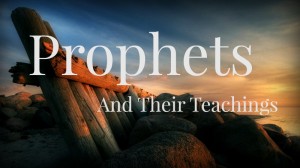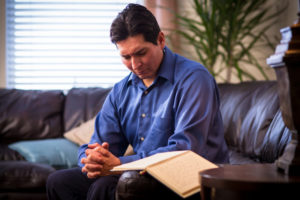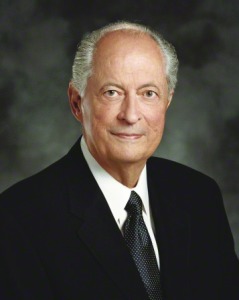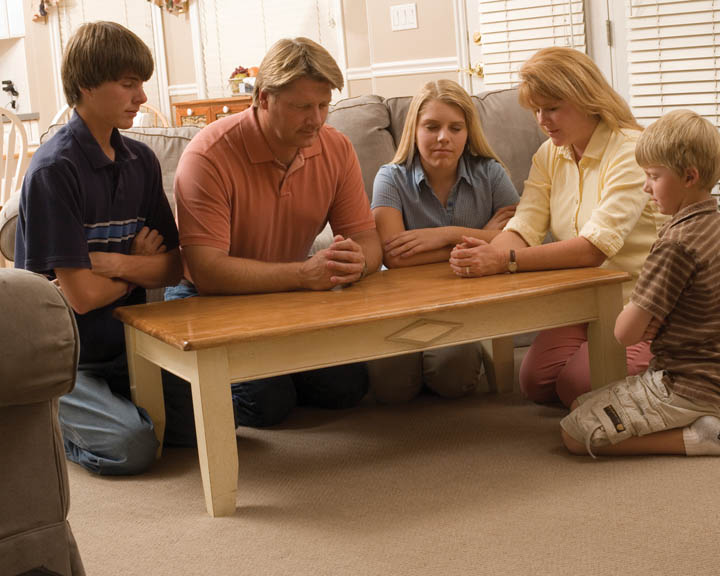The gift of the Holy Ghost is something every member of The Church of Jesus Christ of Latter-day Saints has been commanded to receive. Whether or not we have actually received him into our lives is based on the decisions we make. It is precisely because it is such a universal ordinance in the Church that I began to wonder why it was such a big deal.
In the world, something is most precious because of its exclusivity. The more of something there is, the more commonplace, and, therefore, less valuable it is considered to be. As I thought about this, something in the back of my head reminded me that the Lord rarely does things like the world does things. Usually the two are at odds with each other. Have you ever noticed, for example, that God’s favorite color for formalwear is white, while the world’s preferred color is black? This thread of opposition runs all throughout the gospel plan.
To come back to my point, just because the world considers something held by everyone to be of little worth, it doesn’t mean the Lord feels the same way. In fact, it is because God loves each of us so much that He has declared that every person who chooses to enter the waters of baptism and make covenants with Him will receive that which is more valuable than anything the world can even imagine.
When we make our baptismal covenants, the Lord responds by giving us the companionship of one of the three members of the Godhead. Think about that. God the Father has awarded you, personally, a God whose purpose and desire is to tutor you in the ways of godhood. It is the Spirit’s responsibility to teach you all truth and help you make the changes within you that are necessary for you to be able to walk back into the presence of the Father someday and feel comfortable being there because you have become like him. The Holy Ghost is the ultimate gift.
Nature of the Contract
Elder Robert D. Hales gave a conference talk in October of 2000, entitled “The Covenant of Baptism: To Be in the Kingdom and of the Kingdom.” Most of the quotes here come from his talk. Baptism, as the gateway ordinance (set of covenants) admits us into God’s earthly kingdom. It is a contract we accept. When we make contracts with the Lord, they are forever. When He says we covenant to be “of” His kingdom, He means not just a member “in” the kingdom, but a participating and active member of that kingdom.
I pray that each of us as members of His kingdom will understand that our baptism and confirmation is the gateway into His kingdom. When we enter, we covenant to be of His kingdom—forever!
Spiritual contracts made in mortality are designed to last into eternity. They do not expire at death.
President Brigham Young said:
“All Latter-day Saints enter the new and everlasting covenant when they enter this Church. They covenant to cease sustaining, upholding and cherishing the kingdom of the Devil and the kingdoms of this world. They enter the new and everlasting covenant to sustain the Kingdom of God and no other kingdom. They take a vow of the most solemn kind, before the heavens and earth, … that they will sustain truth and righteousness instead of wickedness and falsehood, and build up the Kingdom of God, instead of the kingdoms of this world” (Teachings of Presidents of the Church: Brigham Young [1997], 62–63).
Note the phrase, “a vow of the most solemn kind.” This contract between God and each of us is in deadly earnest. It is literally life-changing in its effects. Once we have made our covenants and have received the Holy Ghost’s companionship, we are never truly alone.
When temptations come our way, if we will listen, the Holy Ghost will remind us that we have promised to remember our Savior and obey the commandments of God.
Elder Hales also makes the point that in baptism, we did far more than just take upon ourselves the title of Christians.
How many of our children—how many of us—really understand that when we were baptized we took upon us not only the name of Christ but also the law of obedience?
We agreed to represent Christ in every circumstance in our lives. Our baptismal covenants are spelled out in the book of Mosiah in the Book of Mormon. The prophet Alma says in Mosiah 18:8-9:
And it came to pass that he said unto them: Behold, here are the waters of Mormon (for thus were they called) and now, as ye are desirous to come into the fold of God, and to be called his people, and are willing to bear one another’s burdens, that they may be light;
Yea, and are willing to mourn with those that mourn; yea, and comfort those that stand in need of comfort, and to stand as witnesses of God at all times and in all things, and in all places that ye may be in, even until death, that ye may be redeemed of God, and be numbered with those of the first resurrection, that ye may have eternal life—
We agreed to more than just doing these things in principle; we agreed to do all these things, in fact, for the rest of our lives. This is the “enduring to the end” part.
Greater Power to Be
Having his companionship is not just so we have someone whispering in our ear to help us out with answers. The power of the Holy Ghost is that he is able to actually change who we are into something better. When we enter mortality, we come as enemies to God. Our bodies are full of earthly desires that are natural to being, well, earthly. It is our challenge throughout our lifetime to subdue this earthly tabernacle and make it celestial in nature. We cannot do that. We do not have the power to do so. That requires changes in our very nature that are beyond our own abilities. This is what the Holy Ghost does for us.
The Spirit can make changes to our heart. We learn to forgive serious wrongs. We learn to love those who seem unlovable. He takes away the desires to revel in sin. He opens our minds to help us understand things of eternity. He shows us how God lives his life and helps us taste of his joys. He does all of this and more, but there is a catch.
While the Holy Ghost has all these powers to make these changes, he is powerless unless we choose to be obedient. Until we are obedient to the covenants we have made, the Holy Ghost sits on the sidelines waiting for us to choose God over the world. We both have to contribute to these changes. It isn’t all him. For the changes to take effect we have to be living the commandments. When we do this it opens the door for him to make the needed changes in our lives.
Conclusion
 I’m sure you can see that much more could, and probably should, be said on this subject. But the point is that our Father in Heaven has already given us the key to becoming like Him. He is walking beside us every step of the way. As long as we choose to be obedient and keep our promises to the Lord, then He can keep His promises to bless us, which He does through our association with the Spirit’s companionship that we received at baptism.
I’m sure you can see that much more could, and probably should, be said on this subject. But the point is that our Father in Heaven has already given us the key to becoming like Him. He is walking beside us every step of the way. As long as we choose to be obedient and keep our promises to the Lord, then He can keep His promises to bless us, which He does through our association with the Spirit’s companionship that we received at baptism.
The answer to the question in the title of this article is that yes, the Holy Ghost is a big deal. Without him, we could not become like Christ. We could not overcome our weaknesses, or develop the strengths and talents we need in order to become worthy of the celestial glories in the next life. All of these changes are made possible by this precious member of the godhead, the Holy Ghost.
About Kelly P. Merrill
Kelly Merrill is semi retired and writes for https://gospelstudy.us. He lives with his wife in Idaho. His strength is being able to take difficult to understand subjects and break them down into understandable parts. He delights in writing about the gospel of Christ. Writing about the gospel is his personal missionary work to the members of the Church and to those of other faiths who are wanting to know more about Christ's gospel and His Church.







